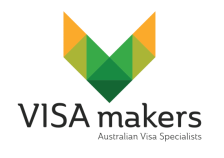The Entrepreneur Visa was introduced in September 2016 as a way to encourage entrepreneurs with innovative ideas to build their startups on Australian shores.
But the restrictive funding requirements for the visa has drawn criticism from startup leaders and immigration lawyers, who are calling on the federal government to overhaul the visa and stop “dragging their feet”.
One of the main recommendations of the StartupAus Crossroads report, released yesterday, was for the government to alter and simplify the qualification criteria for the Entrepreneur Visa. In the report, the authors state as far as they are aware, the visa class has not attracted “any legitimate applications”.
This is backed up by a document obtained from the Department of Immigration and Border Protection through Freedom of Information laws, which shows one lodgement request for the Entrepreneur Visa was made on August 18, 2017. It is unknown if the application was successful.
Speaking to StartupSmart, Glenn Pereira, immigration lawyer at Dagama Pereira & Associates, says the lack of applications for the visa class is indicative of the difficulty of application, and restrictions imposed on hopeful international startup founders.
Pereira has issued a submission to the federal government outlining his issues with the Entrepreneur Visa and has also been in discussion with state and territory governments around the country, hoping to change the visa’s structure and requirements. The government closed submissions on July 31, and is yet to release a report.
Currently, applicants for the government’s Entrepreneur Visa are required to have a minimum of $200,000 in funding from a specified Australian third party. These include Commonwealth government agencies, state or territory governments, publicly funded research organisations, investors registered with the Australian Venture Capital and Private Equity Association, and certain specified higher education providers.
According to Pereira, who currently resides in Santa Clara and works with startups looking to gain visas in places such as Australia and the UK, the $200,000 investment mark is problematic when considering the equity typically leveraged by VCs, and the level of investment undertaken by state governments.
“State governments aren’t going to fund someone for an amount like $200,000 because they can’t claim equity. Queensland is currently offering $100,000 to overseas startups, but that’s the maximum. No state government is going to put forward $200,000,” he says.
“And the problem with VC investment is they require too many requirements for an investment of $200,000 — it’s almost like a Series A requirement rather than a seed or pre-seed. And so many startups have no idea where to start when looking for Australian venture capital.”
FOR FULL STORY PLEASE CLICK THE LINKE BELOW:
www.smartcompany.com.au/startupsmart/news-analysis/entrepreneur-visa-only-one-applicant-in-12-months/


 RSS Feed
RSS Feed